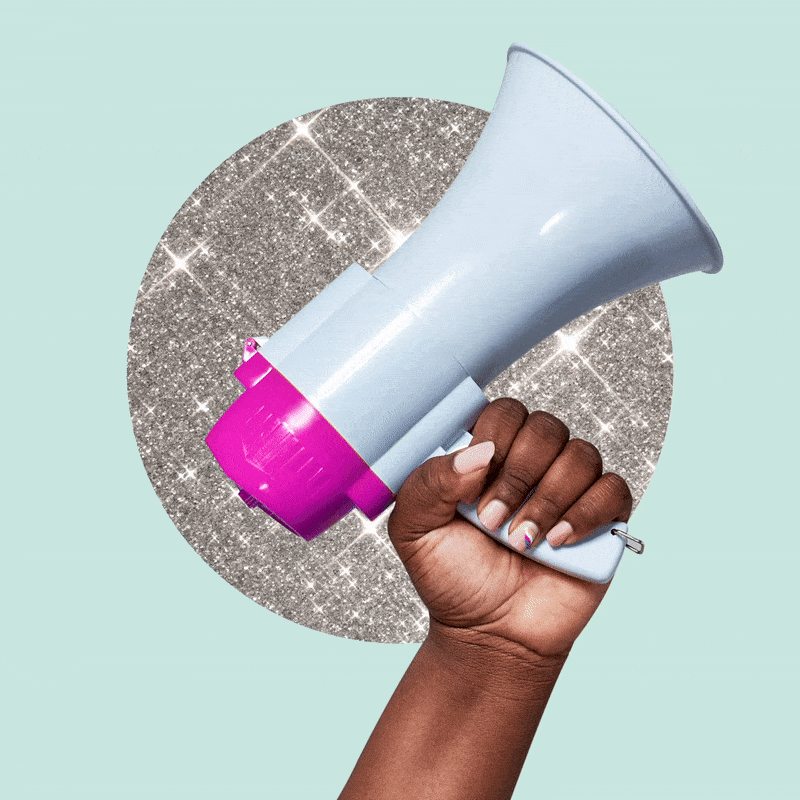How to use your transferable skills to make a career change

If we were all on one big career ladder, then the pandemic certainly has given it a big old shake. The uncertainly, boredom and time to reflect has changed many people’s plans and, as lockdown lifted, 41% of global workers were considering handing in their notice, rising to 54% of 18 to 25-year-olds, according to Microsoft research. In fact, so many people are thinking of upping sticks jobwise, that the term ‘the great resignation’ was coined by management professor Anthony Klotz and has since been trending online. But how the hell do you know what your next career change will be?
Switching career isn’t without its challenges, but it can be made easier if you know what your transferable skills are and how they can be used to identify other roles and industries you could be a perfect fit for. Here, experts - and women who've made big career changes - share their hard-won advice around identifying your transferable skills and using them to bag a brand shiny new career.
What are transferable skills?
The Sunday scaries are getting way too much and you don’t feel motivated, or properly valued at work anymore. But instead of quitting in a blaze of glory, think carefully about what’s next. “Now is an opportunity to consider the industries and jobs that interest you, as well as your passions, strengths, and - most importantly - your marketable skills. Often, jobseekers don't realise the power they have,” says Vicki Salemi, Career Expert at Monster. It’s time to identify your transferable skills - usually thought of as soft, non-technical skills and productive personality traits that allow you to get a job done effectively. Recent LinkedIn research found the most in-demand soft skills for entry-level positions are communication, analytical skills, customer service and problem-solving, and others to note are time-management, adaptability and resilience.
Do this now
Vicki recommends doing an audit of your week then thinking about the transferable skills you used. Maybe you cooked dinner while FaceTiming a friend (hiya, multi-tasking) or found a way to present something more clearly at work (communicator extraordinaire) – whatever it is, you now know your most-used transferable skills. You can then use LinkedIn’s free Career Explorer tool to match your skills to roles you’d be suited to.
Learn from those who did it
Elizabeth le Farge, 35, worked in NHS admin until she decided to retrain aged 30 when, while working full time, she completed a two-year access to nursing diploma before three years studying at university and training on-the-job. She’s now a Test and Trace Nurse at The Royal Marsden hospital.
“I’m great at prioritising tasks and dealing with competing demands thanks to my time managing the diaries of directors. For nurses, prioritisation can be life or death. If two equally unwell patients need you at the same time, teamwork is essential. I always found managing priorities in administrative work a lonely task but, as a nurse, I’ve learnt how to divide and conquer, which has taken my prioritisation skills to the next level.”
Research your career change

It’s easy to feel pigeon-holed in your current industry but there’s so much out there when you really look. Start by browsing the job market using sites like Glassdoor, which gives the lowdown on companies using employee reviews. Next, set up chats with people in your network who have jobs in areas you’re interested in, and remember, being open and honest can really help. “There used to be a lot of stigma around losing a job and the pandemic has really lifted that stigma and made people more open. We’ve seen lots of people posting on LinkedIn asking for help, resulting in everything from encouraging support to new job opportunities,” says Charlotte Davies, Career Expert at LinkedIn.
If you’re still in work but looking to make a move, Charlotte suggests carving out 15 minutes a day for browsing LinkedIn opportunities, connecting with potential employers or joining or starting a conversation on a topic you’re knowledgeable or passionate about. You can also add the #OpenToWork frame to your profile photo and make it only visible to recruiters, making them 40% more likely to message you.
Do this now
Draft a simple email, that can be easily adapted so as to not look too cut and paste and send it to people in your network – which could consist of anyone you know within the field you fancy working in, or the HR departments of your desired company. A simple: “Hi [name here], I'm getting in touch as I’m doing some career research groundwork. I’m excited about new roles that I'm pursuing, and I would love to talk to you about it to get your perspective and advice. Might you be available for a 15 to 20 minute phone call within the next few weeks? Thank you in advance for your time and keen insight.” Once you’re chatting? “People love talking about themselves, so ask what interests them about what they do, and what would they do differently if they were to restart their career now,” Vicki says. “Is there something that they found out the hard way? What’s the growth like in their industry compared to others?”
Learn from those who did it
Scarlett Farhang, 25, set up her baking business, Scarlett Bakes Cakes, after being made redundant from recruitment in March 2020.
“I built a social media following of 30k in less than a year largely through my people skills, as speaking with customers would result in free marketing when they shared my page online and recommended me to others. When I was tired, or when customers were being difficult, I would always remind myself that you never know how big a single person’s network is, and therefore you should treat every person as if they have the biggest network (because the bigger the network, the higher the value, following this rule every single day, I ‘struck gold’ by gaining regular customers with massive networks.”
Emphasise your transferable skills

So, you’ve identified your transferable skills, done the groundwork and found your ideal new role. First, yay. Now, it’s time to make that application shine by highlighting your skills with quantifiable evidence. “Let's say you became the Chair of a volunteer group at university and used your organisational skills to raise x amount of food donations, anything you can quantify will be helpful in backing up those transferable skills. Then an interviewer can ask questions for further details,” advises Vicki.
If you’re missing some skills on a job ad, you could take an online course or watch talks and tutorials to exhibit willingness to learn. “That will immediately boost your confidence and help you stand out to prospective employers,” says Charlotte.
Do this now
As a fun way to grow confidence, arrange time with a friend to give each other morale-boosting intros covering achievements, interests and personality traits that you can record, tweak and use in situations like interviews.
“It might be a case of stepping outside your comfort zone to hear someone you trust and respect praise you so you can own it and incorporate it into your own elevator pitch, boosting your confidence,” Vicki says. “When recording, try not to interrupt each other and enjoy the process. Listen back, take notes, edit the pitch until it sounds and feels right for you, and time it (it shouldn't exceed 30 seconds). Once refined, save your master elevator pitch in your phone notes to refer to any time.”
Learn from those who did it
Anuoluwapo Elegbede, 24, worked as a Finance Assistant, focused on spreadsheets and invoices, but pursued full-time modelling in late 2019, years after being scouted as a student.
“The day I quit my job, I booked a massive campaign for Primark and felt I’d made the best decision of my life, but a lack of confidence has come later. I was on set recently and started thinking: ‘I’m a bit perplexed as to why they chose me’. It’s a lot to do with the pandemic as I haven’t had the opportunity to keep working as much and with COVID, jobs get cancelled all the time. I always give myself an hour to be sad and cry to release the emotion. After that, I try not to dwell on negativity so I’ll talk to friends, read a book or meditate - just being at peace with myself. Then I’ll speak to my agent, arrange test shoots, and post on Instagram. I’m someone who’s always thinking about what I can be doing next to give myself the best chance, after I’ve mourned the loss of a job I didn’t get.”
Could these fast-growing job categories be your next move?
LinkedIn data revealed the most in-demand jobs in the UK in 2021. Here are just a few…
E-commerce personnel
As online shopping boomed as a result of the pandemic, companies hired thousands of E-commerce workers to help get products into the hands of customers. Recruiting for E-commerce roles, including Driver, Supply Chain Associate, Supply Chain Assistant, Warehouse Team Lead and Online Specialist, grew by 143% in 2020 compared to the previous year, with Amazon being the top hiring company.
Finance
With a turbulent economy and uncertainty in financial markets, it makes sense that financial roles, from Investment Specialists to Treasurers, grew by 82% in 2020 as companies focus on keeping their finances strong. This field had the most remote job openings of all 15 categories in LinkedIn’s research and top hiring companies include HSBC and Morgan Stanley.
Customer Service
Travel restrictions, lockdowns and curfews have pushed businesses to find new ways of serving their customers, leading to a 54% growth in Customer Service roles, including retail and call centre jobs. Top hiring companies for customer service roles included Sitel, Capita and B&Q.
You Might Also Like


